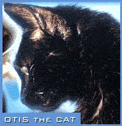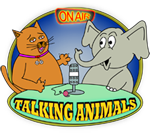Dr. Ann Weaver—an animal behaviorist conducting a pioneering, long-term, conservation-based study of free-ranging bottle nose dolphins off the coast of St. Petersburg, Florida—explains that she initially gravitated toward dolphins as an academic interest, as opposed to a personal one, having grown up in the suburbs of Chicago. Weaver traces her professional path, driven by a desire to work with—and learn about—the behavior of a broad array of animals, working at places ranging from zoos to an exotic pet shop, getting hired to work on her first dolphin study connected with pursuing her masters degree in animal behavior. She discusses the focus of her doctoral thesis, derived from a study examining how primates learn to apologize to
Weaver traces her professional path, driven by a desire to work with—and learn about—the behavior of a broad array of animals, working at places ranging from zoos to an exotic pet shop, getting hired to work on her first dolphin study connected with pursuing her masters degree in animal behavior. She discusses the focus of her doctoral thesis, derived from a study examining how primates learn to apologize to  each other. Weaver details her current project, which she launched more than a decade ago, observing and charting the behavior of the bottle nose dolphins that live in and around the John’s Pass area, recording the impact before, during and after a major task was undertaken there: a bridge project that involved periods of both demolition and construction in this key dolphin
each other. Weaver details her current project, which she launched more than a decade ago, observing and charting the behavior of the bottle nose dolphins that live in and around the John’s Pass area, recording the impact before, during and after a major task was undertaken there: a bridge project that involved periods of both demolition and construction in this key dolphin  thoroughfare. She describes her methods—which echo those of prominent fellow animal behaviorists like Jane Goodall, Cynthia Moss and Dian Fossey—photographing and identifying the dolphins, using close-ups of their fins to identify some, but instantly recognizing as though they were old friends. Over the course of the study, she notes, this represents some 350 dolphins. Photos: Ann Weaver &/or National Oceanic & Atmospheric Administration (www.goodnaturedstatistics.com)
thoroughfare. She describes her methods—which echo those of prominent fellow animal behaviorists like Jane Goodall, Cynthia Moss and Dian Fossey—photographing and identifying the dolphins, using close-ups of their fins to identify some, but instantly recognizing as though they were old friends. Over the course of the study, she notes, this represents some 350 dolphins. Photos: Ann Weaver &/or National Oceanic & Atmospheric Administration (www.goodnaturedstatistics.com)
COMEDY CORNER: Jim Gaffigan’s “Eat Vegetarian” (www.jimgaffigan.com)
MUSIC: Rebekah Pulley’s “Talking Animals Theme,” The Bottle Rockets’ “Dog,” Buena Vista Social Club’s “Black Chicken 37,” instrumentals
NAME THAT ANIMAL TUNE: Bob Marley’s “Three Little Birds”
AUDIO ARCHIVE:
Listen Online Now:



